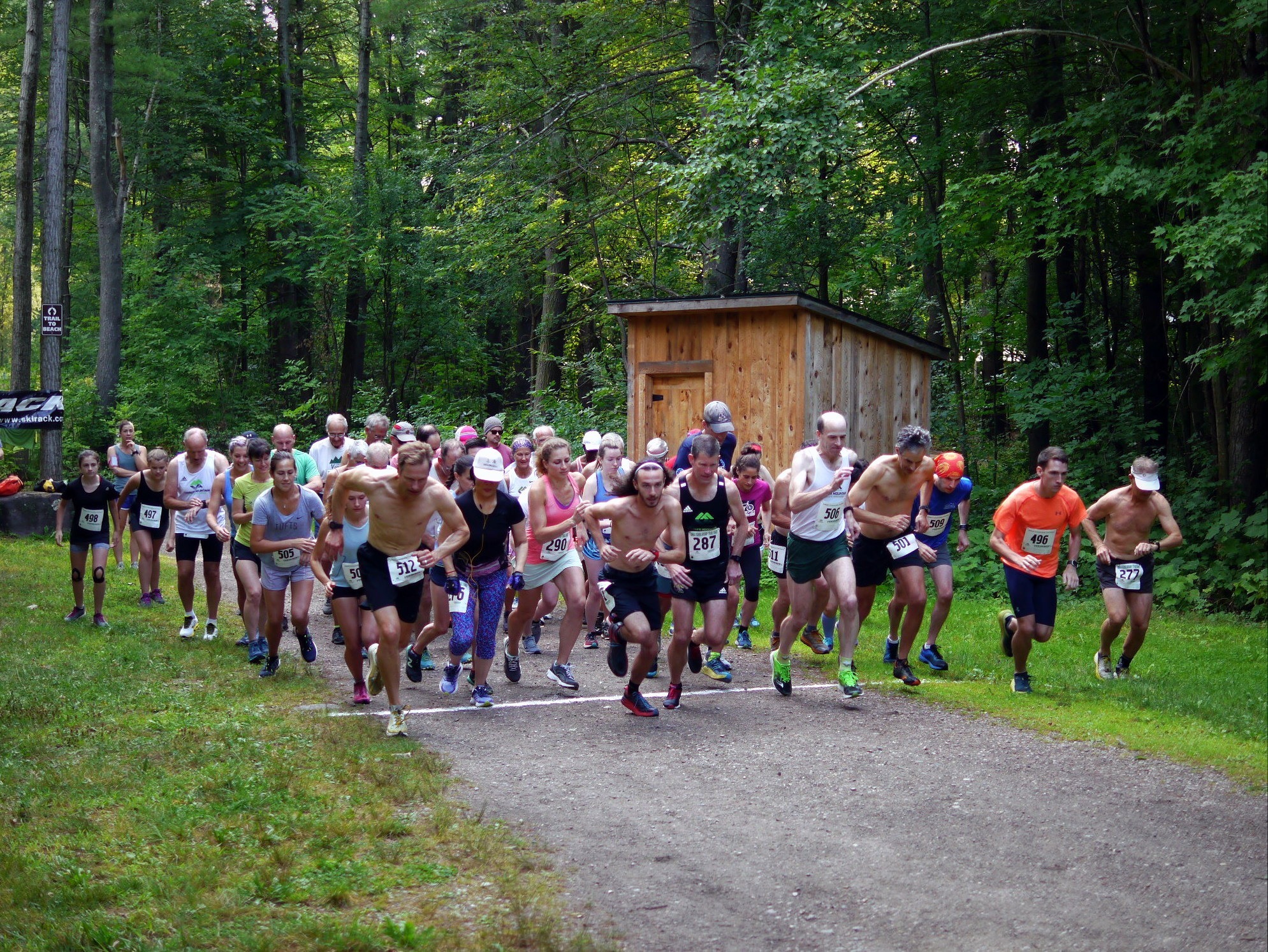
So you went and did it. You’re signed up and/or thinking about your first ultra-marathon. You either hate your toenails, love to eat, or a combination of the two. Whether you are new to running in general or have been running for a while and decided that a marathon wasn’t enough, a huge “congrats” is in order.
Now, once you overcome the inevitable “What’s wrong with you?” and “I don’t even like to drive my car that far!” comments from friends and family, it’s time to start planning and prepping for the journey. As the saying goes, “A goal without a plan is just a wish.” (Antoine de Saint-Exupery). Likely, the only person known to ever whimsically run an ultra without a plan is Forrest Gump; and unless you’re also an international ping-pong champion and have mooned the President while receiving the Medal of Honor, I suggest you have a plan for your first ultra. There’s a lot that goes into a “successful” ultra run. (Insert your own definition of success here.)
Whether you plan on signing up for an “official race” or just want to hit the trails for some long mileage, I think most ultra-marathoners would agree that it is a pretty liberating feeling to see your GPS watch intentionally click past the “26.2” mark.
COMMIT – If you truly want something, the time is now. If you are comfortable running consistently and don’t shudder at the thought of a double-digit mile run, you can build off of that base and get your legs in “ultra-shape”. Give yourself about 3-4 months to build a healthy training plan (or hire a coach) and jump in; don’t be afraid to make mistakes. Sign up and put your money where your mouth is, put in some consistency and you won’t regret it.
It takes about a month to develop a new habit, so plan on the first 3-4 weeks feeling out what works best and when to run throughout the day and week. Plan on having some recovery days but don’t skip out on a run just because you’re “not feeling it.”
DISTANCE IS NOTHING – Rather, distance is what you hype it up in your mind to be. Don’t forget: 26.2 is a completely arbitrary number that was arbitrarily dubbed “marathon” back in the day and people agreed that it was a long and impressive distance to run. Do you think your body knows actually the difference between 26.2 miles and a 50k or is it just in your head?
RECOVERY IS EVERYTHING – Listen to your body early and often. Injuries and overtraining symptoms whisper before they scream. Whatever plan you decide to use to build mileage up and prepare, your body should be the ultimate gauge of health and fitness. Don’t go out and hammer more miles if your body can’t take it or you feel like you are forcing things. It will sideline you inevitably. Invest in some mobility tools like a foam roller or a muscle rolling stick. Keep yourself nice and supple; if you can hit a yoga class once a week, even better.
The key here being sore muscles vs. hurting body parts. If your leg muscles are just a little sore from your last run, you can rub some dirt on them and they will be fine with some easier miles the next day. But if your joints are actually hurting, or you are in pain, or your running form is affected, you should get yourself checked out by a professional before going out for more miles.
HAVE A PLAN – Consistently follow a training plan or invest in a coach (there are any number of options out there) to build mileage wisely, and listen to your body. The key words: “Plan” and “consistently. “Slowly you will realize that the miles just start to flow and peel away week by week. A general rule of thumb is to increase weekly mileage 10-15% for 3-4 weeks then take a week or so to recover, drop mileage a little, let your body adjust, and repeat.
Long runs should also follow this pattern to avoid overtraining or overuse injuries. If you cannot get at least one “long run” in per week you can use two-a-days or back-to-back medium runs to build mileage on tired legs.
A “long run” will depend on your distance goal. I would suggest trying to fit in 80-90% of the goal distance over a day or two. Furthermore, in my experience, this is best done 3-4 weeks before “race day.” So, if you want to tackle your first 50 miler, a 40mile weekend is a great prep for the race. There are a couple ways to do this: 1)You might be able to find a 40 mile race that lines up nicely time-wise. 2) You could plan a 20mile run on Saturday then another 20miler on Sunday. 3) You could also do 10miles Saturday morning, 10 more Saturday night, another 10 on Sunday morning, then 10 more to finish the day Sunday night.
THE DEVIL IS IN THE DETAILS – Whatever race or trail you pick, you should do some research on the course and terrain that will be served up to you hot and fresh. Nothing should surprise you on race day. If the course is hilly, you should be hitting hills of similar grade to prepare the specific muscles you will be working. If the course is super technical trails, you should find some similar types of trails to train on or you should at the very least be working to strengthen your ankle stabilizers and prepare accordingly. Study the course, too. Lastly, find out what nutrition will be offered (if any) on race day and train with the same type of food/drink. It will pay off to get into the specifics.
CHOOSE YOUR WEAPONS WISELY – There is a lot to be said about the “perfect” running shoe but I think “perfect” is defined completely as personal preference. Run in what feels comfortable to you. The same goes for running socks, shorts, tops, and hydration packs. Chafing is a common joke amongst the ultra community but if you do some planning ahead and find the right equipment it could make a huge difference in your race. The key here being that you should choose what works for you based on… surprise… YOU! Not because so-and-so uses it.
ENJOY THE RIDE – An ultra-marathon is not only a physical battle with the unrelenting ground below you, but also a mental, and emotional journey as well. It is an “out-of-body experience” as much as a “this-hurts-my-body experience.” You probably did not sign up for it thinking that it’d be easy. Take some time to enjoy where you are, wherever you are. I can guarantee you will want to quit at some point. Stop and take a deep breath, smile, then take one more step.
NICE-TO-HAVES
a)If the race permits crews/pacers and you like running with people, choose your crew wisely. Surround yourself with positive and supportive people who have preferably run ultras or crewed before.
b) Hike the hills. This being your first ultra, trust me on this one. If you think the hill is steep, just hike it. You won’t lose much, if any, time going up and will save a ton of energy.
c) Brace yourself for unadulterated conversations about poop… No further explanation needed. It is inevitable in your ultra-running career.
No matter how serious a competitor or recreational runner you are, always remember that it is supposed to be a fun experience overall. Don’t let the small things get to you down before, during, or after the race. The ultra community is one of the most welcoming in any sport. There is camaraderie in all the suffering out on trails. Remember that, chances are, you will be seeing these same people again at the next race. Have a cold one afterwards, laugh and joke about how miserably fun it was, and make friends. So with that said… welcome to the club and enjoy the journey! Before you know it, you too will be salting your potatoes with the dried up sweat crusted onto all your running clothes.
Billy is an easy going and adventure seeking endurance junkie, coach, and writer. Catch him enjoying everything from local 5k races, to UTMB, and former record holder for fastest time at the Antarctic Ice Marathon. When he’s not running or biking, he makes a living as a massage therapist at his own practice in downtown Burlington. Check him out at btvmassage.com.
